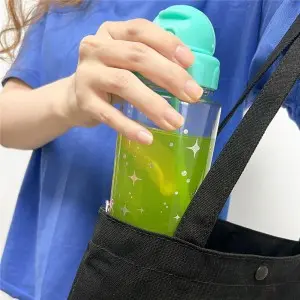Today we are going to talk about plastic water cups, especially the problems that exist in some plastic water cups, and why you should avoid using these plastic water cups.
First of all, some cheap plastic water cups may contain harmful substances, such as BPA (bisphenol A). BPA is a chemical that has been linked to a range of health problems, including hormone disruption, cardiovascular disease, reproductive problems and an increased risk of cancer. Therefore, choosing plastic water bottles containing BPA may pose potential risks to your health.
Secondly, plastic water cups may release harmful substances when heated. When plastic water bottles are heated, chemicals in them may leach into your drink and be ingested into your body. This is especially true when heated by microwaves or exposed to high temperatures, which may lead to the ingestion of harmful substances.
In addition, there may be hidden dangers of bacterial growth on the surface of some plastic water cups. Since plastic surfaces are often easily damaged, minor scratches and cracks can become breeding grounds for bacteria. After prolonged use, these bacteria may affect your health.
Finally, the durability and fragility of plastic water cups are also issues. Compared with other materials, plastic is easily damaged by external forces, which may cause the water cup to crack and shatter. During use, the plastic water cup may break inadvertently, causing liquid to spill out, which may cause accidents.
In light of these potential health and safety issues, I strongly recommend that you avoid plastic water bottles from unknown sources and without quality assurance. If you like to use water cups, it is best to choose water cups made of healthy and safe materials such as stainless steel, glass, and ceramics. These materials are relatively safer, do not release harmful substances, and are more durable.
For your health and safety, please consider carefully when choosing a water bottle. Insist on using healthy and safe materials to ensure that your drinking water is not threatened by any potential risks.
Post time: Feb-27-2024
